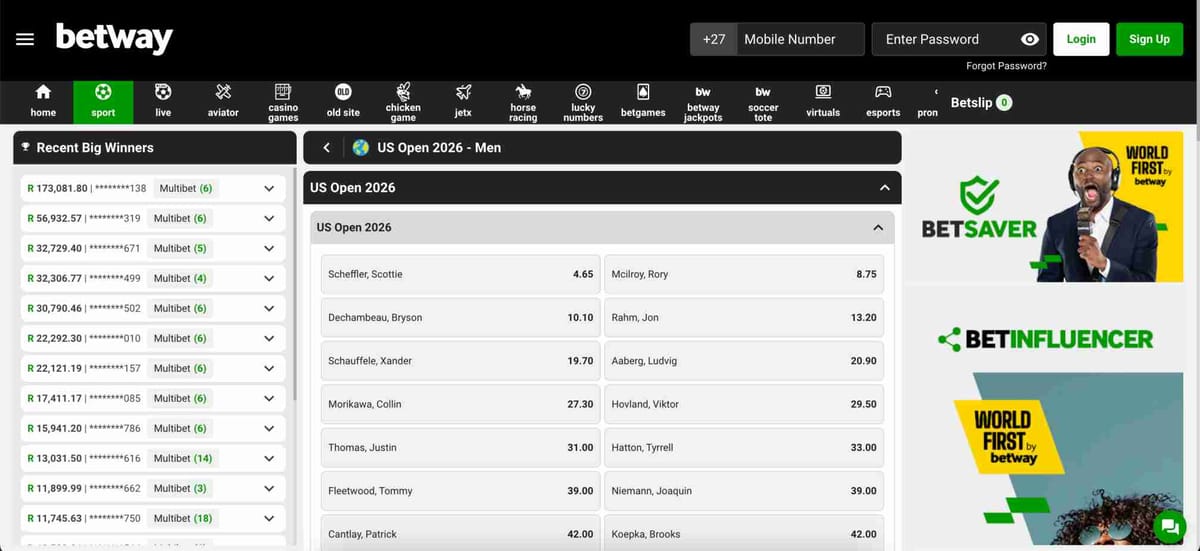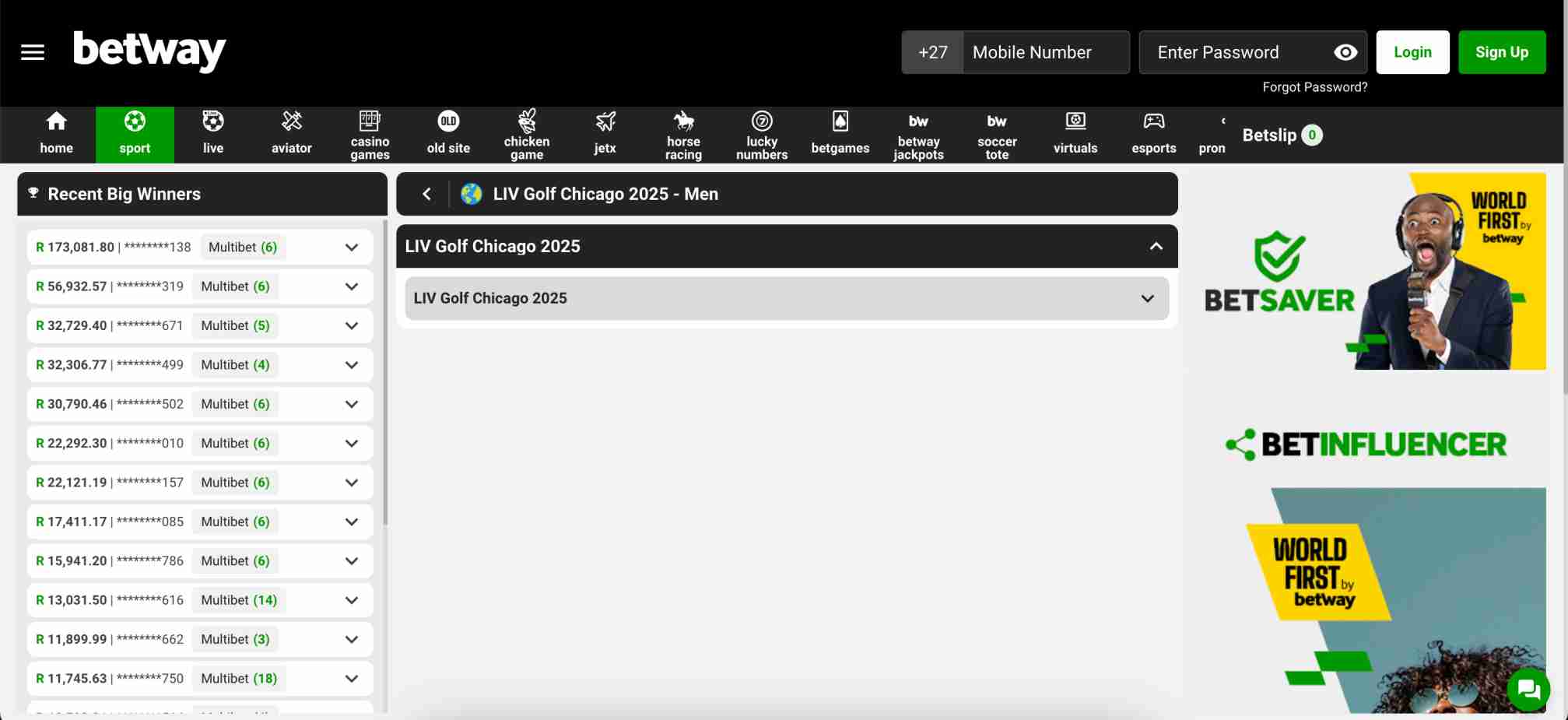What Does Dead Heat Mean on Betway? Understanding Tied Bets and Payouts
Wondering how Betway handles tied bets in sports like golf or racing? Learn what happens when your pick finishes level and how payouts are calculated.

When two or more competitors finish in an exact tie and no tiebreaker is used, Betway applies a rule that splits your stake among the tied selections to calculate your payout.
This means you still get a return if your pick finishes tied for a winning position—but your profit is reduced compared to a clear win.
In situations like golf or horse racing, you might encounter terms such as what does dead heat mean on Betway?
That refers to this specific payout adjustment method used when no single winner can be declared. In this guide, we’ll break down exactly how dead heats work, when they apply, and how Betway calculates your final return.
How Betway applies dead heat rules to your bet
Betway uses the standard dead heat rules that most major sportsbooks follow. When a dead heat occurs, your stake is divided by the number of tied participants, and then the winnings are calculated based on that reduced stake.
For example, let’s say you backed a golfer to win a tournament at 10/1 odds, and he finishes tied for 1st with one other player (so two-way tie).
In this case, Betway would treat it as a dead heat: your stake is halved, and only that portion is paid out at 10/1. You get your share of the winnings, but not the full payout you would’ve received if your selection had won outright.
From what I’ve seen, this most often comes up in golf and horse racing markets, but it can also appear in novelty bets, esports, or even football if you're wagering on top goalscorer-type outcomes.
Why Betway uses dead heat rules (and how it keeps betting fair)
The main reason for dead heat rules is fairness. If two horses cross the finish line at the exact same time, and the judge declares it a tie, Betway (and other sportsbooks) can't pick one over the other—they both technically won.
So instead of paying out the full bet to both, which would break the odds structure, they split it.
That’s why your payout is adjusted: you're still rewarded for making a good pick, just not as much as if it had won outright.
I've had punters reach out thinking Betway made a mistake, but in some cases, they were actually dealing with situations where Betway does return include stake, and once I walk them through the math, it always makes more sense.
Where you’re most likely to see a dead heat on Betway
Based on the support cases I’ve handled, these are the most common bet types where Betway dead heat rules apply:

- Horse racing: If two or more horses finish in a tie for any place that affects your bet.
- Golf: Ties for winner, top 5, or top 10 finishes are classic dead heat scenarios.
- Place markets: In races or tournaments where you're betting on a selection to finish in the top few positions, ties are common and trigger dead heat rules.
- Special markets: Things like "Top Goal Scorer" or "Player of the Tournament" sometimes end in ties, especially in football or cricket futures.
The rule can even apply in sportsbook promotions that involve leaderboard placements or team performance rankings.
How Betway calculates your dead heat payout (with an example)
Let’s take another example, because this is where people usually get stuck.
Suppose you bet $20 on a golfer at 25/1 to finish top 5, and three players tie for 5th place. Betway will treat this as a three-way dead heat.
That means your $20 stake is divided by 3 = $6.67. You’ll then be paid $6.67 at 25/1, which returns about $166.75. Your total return is your stake portion plus profit, so around $173.42.
It’s not ideal compared to a full win, but it’s a fair share based on the tie—and way better than getting nothing.
What does dead heat mean on Betway if you're unsure about your payout
If your bet settled differently than expected, such as in cases where you wonder what happens if a player doesn’t start on Betway, I’d recommend checking the Bet Details section in your Betway account.
In my experience, the payout breakdown usually shows the adjusted stake and odds. But if it still doesn’t add up, their live chat support is genuinely helpful (I've tested it personally when users were confused by multi-way ties in golf majors).
You can also look at the Rules section for each sport in the Betway Help Centre—they explain the dead heat calculation clearly for each market type.
Final thoughts on dead heat rules at Betway
So, what does dead heat mean on Betway? It’s all about fairly dividing winnings when your selection ties with others.
Once you understand the logic behind it, it’s less frustrating and more predictable. In most cases, dead heat outcomes still result in a positive return—it’s just not quite as big as a solo win.
Whether you’re backing outsiders in a packed horse race or betting on top finishers in a major golf tournament, dead heats are something to keep in mind.
They don’t happen all the time, but when they do, knowing how Betway handles them helps you avoid surprises when your bet settles.
FAQs
What does dead heat mean on Betway?
When two or more selections tie and no clear winner is declared, Betway splits your stake between them to calculate a reduced payout.
How does Betway calculate dead heat payouts?
Betway divides your stake by the number of tied participants and pays that portion at the original odds.
When do dead heat rules apply on Betway?
You’ll most commonly see dead heat rules in golf, horse racing, and place markets when multiple selections finish in the same position.
Can a football or esports bet result in a dead heat?
Yes, if you're betting on outcomes like top goalscorer or MVP and there’s a tie, dead heat rules can apply.
Why does Betway reduce my winnings for a tie?
It’s to ensure fairness—since no one won outright, your return is adjusted to reflect a shared result without overpaying.
